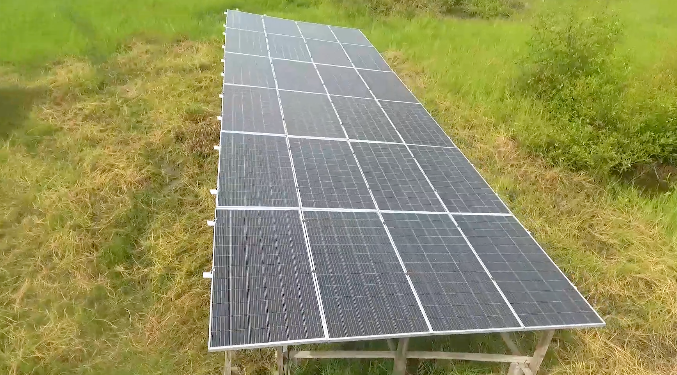The Abuja Electricity Distribution Company (AEDC) has partnered with Husk Power Systems (Husk), a clean energy company, to introduce solar power from interconnected mini-grids (IMGs) into its network.
IMGs are linked to a distribution network operator’s infrastructure.
This involves a partnership between the developers, distribution companies like AEDC, and the communities where the mini-grids are located.
The IMGs make use of company’s existing transmission and distribution (T&D) infrastructure. This helps improve customer service through metering, billing, payment collection, and system management.
In a statement on Thursday, Husk said the partnership, carried out alongside Duduguru community in Nasarawa state, aims to provide sustainable, affordable and reliable energy to peri-urban commercial and residential customers.
The company also mentioned that solar energy will be injected into the AEDC service network to enhance service, increase revenue, reduce technical losses, and cut carbon emissions.
“The solar-powered mini-grid in Duduguru, located in Obi Local Government Area (LGA), has a planned average daily energy supply of 656 kW, which will serve about 1,000 customers, roughly 80% households and 20% micro, small and medium-sized enterprises (MSMEs) and small factories,” the statement reads.
Husk has more than 40 isolated mini-grids already operating in Nigeria.
The company says it has identified over 50 potential IMGs across 10 states and is committed to expanding the renewable energy service company (RESCO) model in Nigeria.
“With IMGs, Husk assumes responsibility for a Disco service area, building a local solar generation asset (mini-grid) that will displace significant diesel generation and taking on operations and maintenance (O&M), bill collection and all other responsibilities for that area,” the statement added.
Manoj Sinha, Husk’s co-founder and CEO, said the development will promote access to clean energy for many communities.
“This is a first step in successfully scaling the renewable energy service company (RESCO) model, not only for all of Nigeria, but eventually across Sub-Saharan Africa. It is a clear demonstration of how decentralised renewable energy systems give people and businesses the ability to control their own energy future.”
Prince Bulus Iwala, the chief of Duduguru, welcomed the initiative, saying he “strongly” believes it will bring unprecedented development to his community.
In May 2024, Husk and the Rural Electrification Agency (REA) partnered to roll out 250MW of decentralised renewable energy (DRE) projects in Nigeria, including IMGs.











